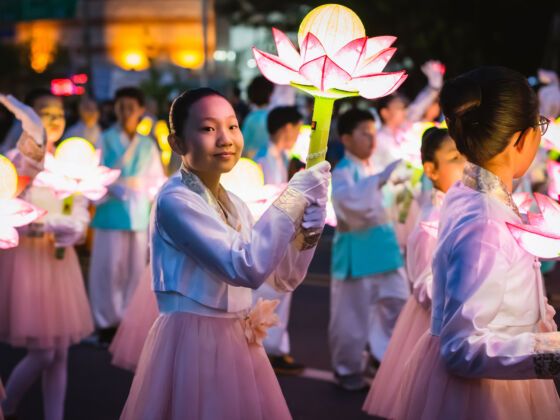The differences between American and Korean cultures are in many ways easy to spot. But what about the subtleties, the stuff sitting just below the surface and not coming forth until after one embeds themselves in the societal structure of South Korea? A Quora user wanted to know about the supposed “dark side” of living in South Korea. Here is a collection of top responses.

On renting an apartment:
Christian Bergland, who formerly lived in South Korea, noted that “People live on top of each other in small apartments with prices that often make Manhattan prices look reasonable.”
On population density:
Christian Bergland explained that “Korea’s population density means that it’s very difficult to escape people, and the downtown of a Seoul suburb will often be as crowded as Times Square.”
On the long working hours:
“Koreans also have the third highest working hours in the OECD after Mexico and Costa Rica, and it’s not particularly close to countries of the West,” Christian Bergland said. He added that their lack of time off makes “the notoriously vacation-stingy Americans look like they’re living lives of leisure.”
That said, their hard work produces solid results. Craig Urquhart said that “despite the claustrophobic conformity, the closeness and attention people give each other has advantages. I’ve never seen teams of people get together to complete group tasks as efficiently as I’ve seen in Korea. You want something complex done that requires lots of coordinated effort? Koreans are the people to ask.”
On monoculture:
Craig Urquhart notes the conformity of many of the cities and neighborhoods: “you soon realize something: Every subway station and the neighbourhood has the same outlet stores, the same chains, the same family restaurants, the same same sameness.”
“If Korea is a great place to be a culturally adaptable foreigner, it’s a brutal place for Koreans. Many Koreans want to leave not because South Korea isn’t a politically free place, or because they face hardship or hard times finding good jobs. It’s because of the constricting social culture,” he explained.
Iris Tu, who taught English in South Korea, had this to say: “Whatever is different still isn’t very much accepted as a whole and if the person is more accepting or open, it’s likely because they did some traveling out of the country.”
Canadian expat Ken Eckert added: “One of my biggest disappointments is how totalizing Korean identity is here, and how so few can see beyond this binary of dividing the world into Korean or foreign. It would be inconceivable in Canada for a person to constantly refer to ‘we Canadians,’ or to not only rule out but to have never tried anything but Canadian food, music, and culture, even when abroad. Here it is quite normal. Coffee cannot be consumed until it is deemed ‘Korean coffee’!”
On the drinking culture:
Because of the long work and study hours and high amounts of social pressure, Koreans are known for being heavy drinkers. According to Iris Tu, “The drinking culture there is ridiculous and starts young. It’s common to see people stumbling down a road together haphazardly holding each other up on a weeknight to get away from it all.”
Most of the answers on this Quora entry centered around these topics, echoing each other and citing personal examples. It’s important to note, however, that these opinions are primarily those of foreigners, some who only spent a year or two in the country. There are upsides to living in Korea as well.
We’ll leave you with one more thought from Christian Bergland. “The country may be rich, but life is hard, even for the wealthy. Leaving Korea means escaping that, but it also means accepting a life that simply won’t be as fun, exciting, or engaging as the one you left behind.”